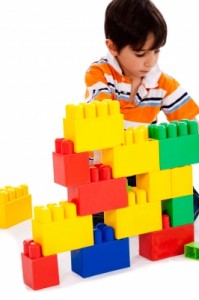
Bedwetting help is available for parents and children dealing with this common issue. It’s important to know which type of role you will take when addressing the issue of bedwetting. There are typically two types of treatments.
- Supportive
- Curative
Supportive: It’s always best to start with the supportive treatment method, especially if your child is younger than 8 years old. Aside from exceedingly rare occasions, your child wetting the bed is not caused by a medical condition. Choosing supportive treatment is important to making sure your child doesn’t feel ashamed or embarrassed about wetting the bed.
Some supportive treatments would include:
- Positive reinforcement after dry nights
- Mattress pads
- Bedwetting diapers
- Waterproof underwear
Curative: Many parents move toward curative methods after a child hits a certain age, 9 or older. At this point, more aggressive measures may need to be taken to break the bedwetting cycle. Curative measures may include:
- Bedwetting alarms
- Vibrating watches
- Medication
- Counseling
Deciding which curative measures to take will depend on a number of factors. If your child has stopped wetting the bed for a period of six months or more, only to start again, this is a sign of secondary nocturnal enuresis.
Secondary bedwetting help may involve psychological counseling as a resurgence of wetting the bed could be an indication of anxiety or stress. If you child is struck by secondary enuresis, you should ask yourself a few questions:
- Was there a recent move, and did your child switch schools?
- Is your family going through separation or divorce?
- Is your child being bullied at school?
If your child does not suffer from secondary enuresis and simply needs bedwetting help to overcome the issue at a later age, other options would likely be more beneficial, such as bedwetting alarms or medication.
Community Support: Bedwetting help
Many parents don’t seek bedwetting help for their children because they simply don’t realize how common the issue is.
Start by seeking out bedwetting help through an online forum. You’ll find many parents dealing with the same issue. You can collaborate with other parents and learn more about what treatments and methods have proven successful in providing bedwetting help to other parents.
You may also consider starting a local support group with other parents. Because children who wet the bed are often too embarrassed to attend slumber parties, they could suffer confidence issues and low self esteem.
Meeting with other parents will provide the opportunity to organize a slumber party for several children with bedwetting issues. This will help your child develop social skills in a setting where bedwetting help is available and no stigma or shame is attached to having an accident.
Bedwetting Help Through Books
Help with bedwetting is also available through books. Several renowned doctors and child psychologists have addressed the issue and conducted studies to learn more about the causes and solutions for bedwetting.
Read up on the best methods of bedwetting help and you’ll be able to formulate a plan of attack that will help you and your child beat bedwetting in a positive and uplifting way.
